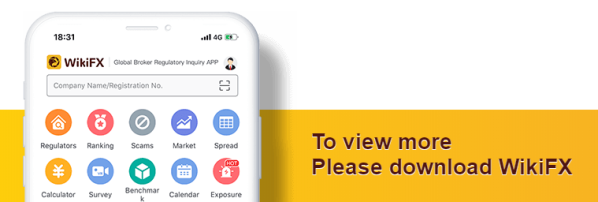
Forex trading scams are when criminals trick people into investing in fraudulent foreign currency schemes. They often promise once in a lifetime investment opportunities where traders can make high returns overnight. The scammers often disappear after theyve received payment, leaving investors with nothing.
There are six common forex scams to watch out for.
(1)Signal seller scams
Signal sellers are companies that offer suggestions about the best time to buy and sell currencies based on what they say is market analysis. They usually charge investors a fee for this information.
Signal seller scams are when companies charge investors without giving them any advice, or give some trade details and then disappear. They usually promise that their data will guarantee successful trades and high profits.
(2)Forex robot scams
A forex robot is a software programme that can automatically buy and sell currency for you using an algorithm.
The software in legitimate forex robots can be tested and reviewed by an independent body to make sure it works.
Some criminals sell untested or fake software that makes trades at random and could cause investors to lose money. Always do as much research as possible, to give yourself the best chance of avoiding a robot scam.
(3)Forex broker scams
Sometimes criminals pretend to be legitimate forex brokers or investment platforms that already exist to trick people into investing in non-existent forex funds.
Fraudsters will often use the name and registration number of an authorised forex broker. You should always check the FCA register and use only the contact details listed there. It is common for scammers to give reasons why these numbers are wrong such as being out of date.
Some scammers also set up identical websites to trick investors into paying them.
(4)Forex pyramid scheme
Forex pyramid schemes focus on recruiting new members into investment groups that claim to offer advice and data that help them make successful forex trades.
Members of these schemes are charged a subscription fee and encouraged to recruit more people to join so that they can earn a commission.
In this scam, money is generated from membership fees rather than actual profits from forex trading. It is called a pyramid scheme because as new recruits join, you move higher up the pyramid and ‘earn’ more money.
When no more members can be recruited or membership starts to drop, the leaders usually close the scheme and take all of the money.
(5)Managed forex account scams
Some investment companies offer managed forex accounts, where an expert forex trader invests currency on your behalf. And investors usually have to pay a fee or commission for this type of account.
Managed forex account scams are when fraudsters pretend to offer expert forex trading services but steal investors money instead. It's really important to research any financial service or platform before investing your money. Always check the FCA register to see if they are authorised to avoid being caught out.
(6)Forex Ponzi scheme
Fraudsters use Forex Ponzi schemes to advertise non-existent forex funds that guarantee a high level of return in a short space of time.
They usually only ask for a small investment upfront and pay initial investors the promised returns to give the impression that the scheme is successful.
These investors are then encouraged to get their friends and family to invest in the scheme.
Once enough people have paid into the scheme, the scammers vanish with the money and leave investors with nothing.
Tips for identifying forex scams
Look out for these telltale signs that can help you identify a forex scam and avoid getting caught out.
- Unsolicited offers: If you‘re contacted out of the blue about a forex investment opportunity, it’s likely to be a scam. Never give away your personal information or transfer money to the firm if they do.
- ‘Risk-free’ investing: Investing always comes with some level of risk so any company promising risk-free investment opportunities is likely to be a scam.
- Unrealistic returns: Forex scams often promise to make high returns from your initial investment that are too good to be true. Any company offering get-rich-quick investment opportunities is likely to be fraudulent.
- Time pressure: If a company tries to pressure you into investing quickly, its likely to be fraudulent. Some scammers even offer bonuses or discounts to persuade you to invest right away.
- Social media adverts: A growing number of scammers are using social media to advertise fraudulent investment opportunities. They often use images and videos of luxury items to trick people into making an investment.
How to avoid a forex scam
The best thing that you can do to avoid a forex scam is to educate yourself. The more you know, the less likely you are to be taken advantage of.
Do your research—learn more about the foreign exchange market, terminology, and the legitimate resources to assist you with trading. Consider setting up a demo trading account with a trusted broker to practice before putting actual money on the line.
As with any type of investing, take your time before you make decisions with your money. For example, you can use a global corporate financial information searching tool such as WikiFX, whose core function is to provide basic information searching, regulatory license searching, credit evaluation, platform identification and other services to the included foreign exchange trading companies.
Conclusion
It is recommended to partner with a regulated broker with a well-established reputation, flawless track record, and has positive feedback from previous and existing investors to avoid becoming a victim of a foreign exchange trading scam. While the allure of quick returns is hard to dismiss, it is best to err on the side of caution and be more thorough in your vetting process.

Leave a Reply